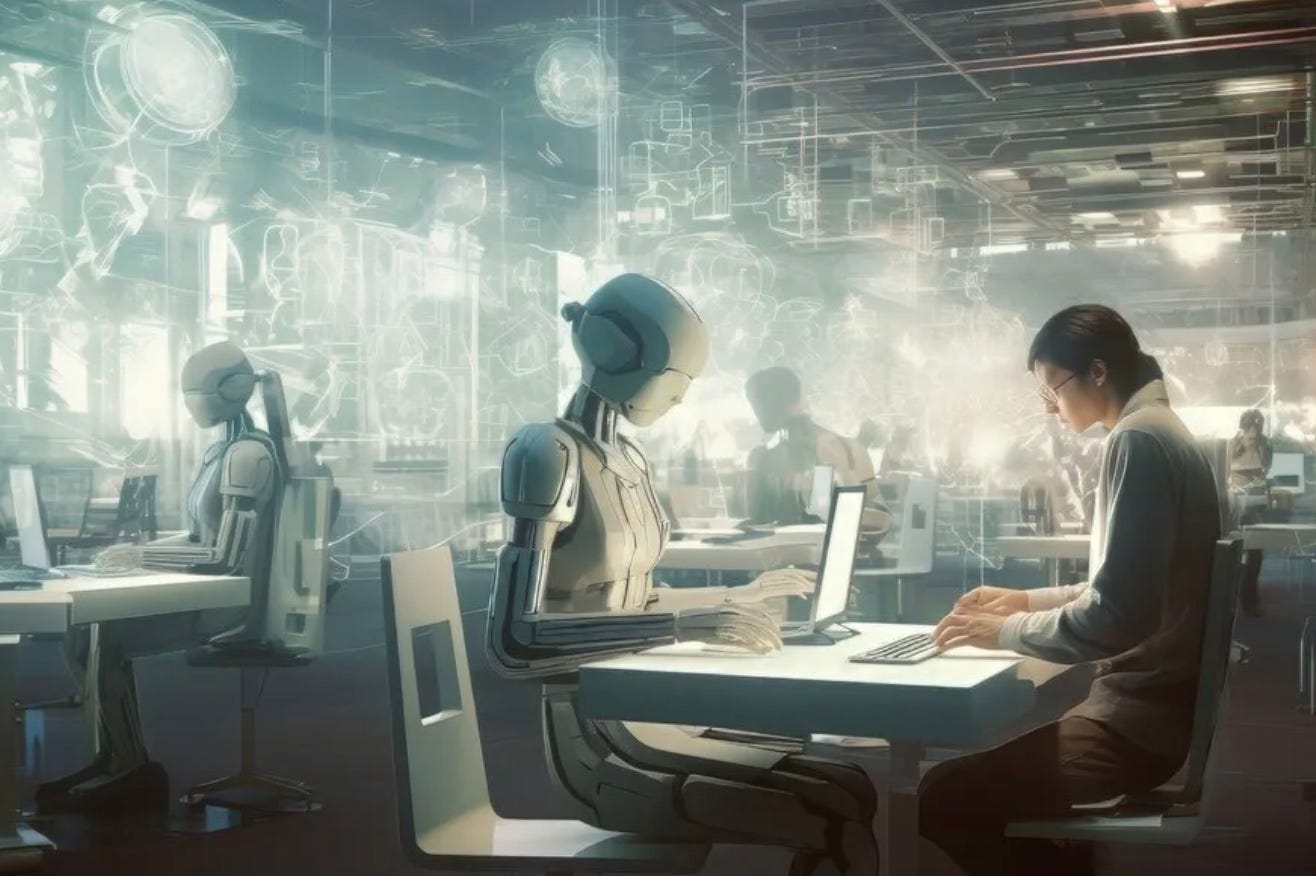AI Investigative Reporting: Yes, There Is Such a Thing!
You’re likely burned out by news about Open AI’s ChatGPT and competitive products, but AI is coming over to the world of journalism, too.
So I’ve got some good news and bad news about artificial intelligence (AI) technology and it’s potential for assisting groundbreaking investigative reporting.
First, the bad news.
I won’t be able to amaze you with major findings such as: how we can prove that UAPs (aka UFOs) are for real and we have access to non-human biological evidence; that there is life after death and it’s something to look forward to; and that there was more than one shooter at JFK’s assassination (but please, just one shooter — come on!!!).
Now, the good news.
In this age of scaled-back and downsized news reporting teams in all types of media organizations, these practices become a necessity. More is expected of news media in accuracy these days, as it should be, but the pressure can intensify working in a smaller media environment than 10-to-20 years ago.
I know that one well. I’ve also been able to do some very fascinating and useful research and investigative reporting for a few research projects and publications.
AI products are being put to good use; and there’s always tapping into the classic investigative journalism methods that go back much farther than Woodward and Bernstein in the 1970s.
Don’t trust Grok AI just yet
Besides examples coming out of generative AI, chatbots, and virtual assistants producing questionable content, the only strange and damaging one has come out of Tesla CEO Elon Musk’s Grok AI chatbot.
Klay Thompson, a seasoned NBA player previously with the Golden State Warriors and now with the Dallas Mavericks, was falsely accused of committing vandalism with bricks. In an X (formerly Twitter) post, Grok put out a story titled, "Klay Thompson Accused in Bizarre Brick-Vandalism Spree.”
Grok AI had to learn that, in the game of basketball, throwing bricks means that the player had a bad day trying to make shots and score points, according to AIAAIC, an independent, non-partisan, initiative that makes the case for real AI.
I tested several tools, including Ask Your PDF (ask questions to any documents in your computer), Chatbase (create your own chatbot), and Document Cloud (upload documents and ask GPT-like questions to hundreds of documents simultaneously).
These tools make use of the same mechanism that operates OpenAI’s famous ChatGPT—large language models that create human-like text
Luiz Fernando Toledo, a Brazilian investigative journalist well known on CNN and several other media outlets, has several signs of hope about media professionals using these new resources. He’s not the only journalist who can offer praise for the useful technology.
He’s been very happy using DocumentCloud, a free platform for managing primary source documents; Google Pinpoint, a free platform using AI to identify locations, people, and organizations in a document; Aleph (OCCRP), which allows journalists to organize data through an endless supply of records; Ask Your PDF, which offers the opportunity to present questions to a document; GPTs, the next version of ChatGPT offering the ability to create and train your chatbot through a paid-premium account; and Chatbase, which requires no coding experience and the opportunity to create your own chatbot.
I’ll be interested in trying out some of the software to tap into classic investigative journalism tools and resources. There’s always the federal Freedom Of Information Act (FOIA), and gaining access to ancestry record, property tax records on home ownership, criminal records, and court records and filings. Granted, some of this is very limited to law enforcement and other government officials.
But doing the work still pays off. One of the most amazing stories I’ve ever heard happened this year. Michael and Robert Meeropol, children of Julius and Ethel Rosenberg, were able to finally clear their mother’s name from charges and executions claiming they had both conspired to steal records about the atomic bombs for the Soviet Union. Both of them were executed by electric chair at Sign Sing state prison in New York on June 19, 1953. They were able to use FOIA to prove their mother was innocent — but it take them 50 years.
Research Questions I’ll Try To Answer:
Will Grok AI be able to take over the world?
Probably not, but watch out for your privacy being violated, according to Wired.
Will all our jobs go away?
Elon Musk thinks that AI will probably take away all our jobs, but that’s not necessarily a bad thing.
Photo source: m.intelligentchange.com
Don’t forget to leave any comments or questions you might have. I look forward to reading what’s on your mind.




